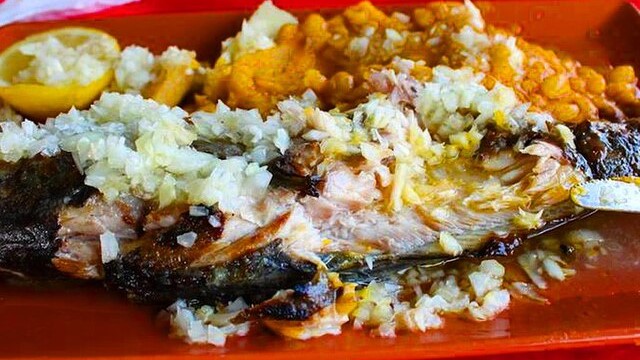In the bustling markets of Luanda, the air carries a heady mix of scents—grilled fish crackling over charcoal, palm oil simmering in heavy pots, and the unmistakable heat of piri-piri chilies. The aromas tell a story of Angola’s culinary identity, one shaped as much by its indigenous roots as by centuries of Portuguese presence.
Angolan cooking rests on a foundation of staples: cassava, maize, beans, and an array of native vegetables. These ingredients, abundant in the countryside, form the basis of many dishes. Funge, perhaps the most ubiquitous, is a thick, dough-like accompaniment made from cassava flour and water. Served alongside richly spiced stews, it is less a side dish than a central part of the national table.
The Portuguese imprint remains vivid, particularly in the enduring presence of bacalhau—salted cod imported during colonial times and now wholly integrated into the cuisine. Prepared in countless variations, it appears baked with onions and olives, or transformed into bacalhau à Brás, where shredded cod mingles with thin potato strips and softly scrambled eggs.
Across the country, the open flame is king. Marinated chicken and beef, brushed with piri-piri sauce, roast slowly over wood fires, yielding smoky, fiery flavors. Often, these grilled meats arrive with cooling salads, sometimes made from açaí berries, offering a refreshing counterpoint to the heat.
Soups and stews occupy a prominent place in the nation’s food culture. Caldeirada, a robust fish stew enriched with vegetables and aromatic spices, pairs naturally with rice. Another mainstay, muamba de galinha, combines chicken with palm oil, okra, and a blend of seasonings, producing a dish that is both earthy and complex.
The sweet course is no afterthought. Bolo de Angola, a moist coconut cake often reserved for festive occasions, captures the celebratory spirit of the cuisine. Its richness speaks to the joy that infuses gatherings, whether large or intimate.
Meals in Angola are rarely solitary. Dining is a communal act, a moment when families, neighbors, and friends gather to share food and conversation. It is in this spirit of togetherness that Angolan cuisine is best understood—not merely as sustenance, but as a living expression of history, resilience, and cultural exchange.
Sources:
- Birmingham, David. A Short History of Modern Angola. Oxford University Press, 2015.
- Davidson, Basil. African Kingdoms. Time-Life Books, 1971.
- “Traditional Foods in Angola.” Food and Agriculture Organization of the United Nations, 2020.

